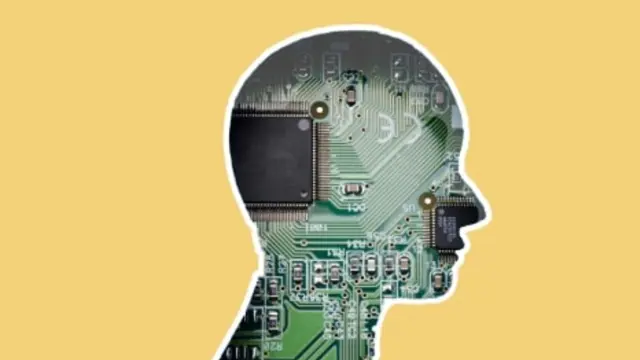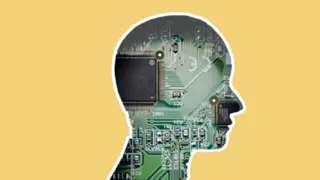
CPD Certified Computer Science Course
Learn how to control computers in various ways and become well-equipped with the fundamentals of computer programming.
Summary
- Reed Courses Certificate of Completion - Free
Add to basket or enquire
Overview
Learn how to control computers in various ways and become well-equipped with the fundamentals of computer programming through this online training course:
- Understand how computers manipulate data to produce information
- Develop the skills to read a block of code and understand it without having to execute it first
- Design meaningful and efficient algorithms that can be used to solve everyday problems
- Recognise errors in blocks of code and how to correct them
- Design efficient programs when presented with a problem
Certificates
Reed Courses Certificate of Completion
Digital certificate - Included
Will be downloadable when all lectures have been completed.
CPD
Curriculum
Course media
Description
The Upskillist Computer Science Course is designed to provide learners with a solid foundation in the core principles and concepts of computer science. The course covers a wide range of topics, including programming, data structures, algorithms, databases, software development, and more. It aims to equip learners with practical skills and theoretical knowledge that are essential for understanding modern computer systems and preparing for a career in technology or further studies in the field.
Key Features of the Course:
1. Introduction to Computer Science:
• Overview of the field of computer science and its importance in modern technology.
• Introduction to basic concepts like hardware, software, and computational thinking.
2. Programming Fundamentals:
• Learning the basics of programming languages, such as Python or Java.
• Understanding variables, data types, loops, conditionals, and functions.
• Writing and debugging simple programs.
3. Data Structures and Algorithms:
• Introduction to fundamental data structures such as arrays, lists, stacks, queues, and trees.
• Overview of algorithms, including sorting, searching, and recursion.
• Efficiency and complexity analysis using Big O notation.
4. Object-Oriented Programming (OOP):
• Introduction to OOP principles such as classes, objects, inheritance, encapsulation, and polymorphism.
• Applying OOP concepts to develop modular and maintainable software.
5. Databases and SQL:
• Understanding the basics of database design and management.
• Learning how to use SQL (Structured Query Language) to store, retrieve, and manipulate data in relational databases.
6. Software Development Lifecycle:
• Overview of software development methodologies such as Agile and Waterfall.
• Learning about project management, version control (Git), and the importance of testing and debugging.
• Introduction to collaborative software development practices.
7. Web Development Basics:
• Introduction to web technologies such as HTML, CSS, and JavaScript.
• Understanding how websites and web applications are built and deployed.
• Creating simple, interactive web pages.
8. Computer Networks and the Internet:
• Overview of how computers communicate over networks.
• Understanding the basic principles of the Internet, IP addressing, DNS, and protocols like HTTP and FTP.
9. Cybersecurity Basics:
• Introduction to essential cybersecurity concepts, including encryption, firewalls, and threat management.
• Understanding the importance of securing software and data.
10. Artificial Intelligence and Machine Learning (Introduction):
• Overview of AI and machine learning concepts.
• Understanding basic algorithms and applications of machine learning in various industries.
Learning Outcomes:
• Gain a strong foundation in computer science principles and programming languages.
• Learn how to design, develop, and debug software applications.
• Understand how data is structured, stored, and retrieved using databases and SQL.
• Develop problem-solving and algorithmic thinking skills.
• Gain practical experience in web development and learn the basics of software engineering.
• Acquire knowledge about networks, cybersecurity, and emerging technologies like AI and machine learning.
Who This Course is For:
•Aspiring Programmers: Individuals looking to start a career in software development or IT.
•Students: College students pursuing a degree in computer science who want additional support and practical experience.
•Career Switchers: Professionals looking to transition into the technology sector.
•Tech Enthusiasts: Anyone interested in gaining a deeper understanding of how computers and software work.
The Upskillist Computer Science Course provides a comprehensive introduction to the field, making it ideal for beginners who want to gain the skills necessary to pursue a career in computer science or further their understanding of modern computing systems.
Who is this course for?
The Upskillist Computer Science Course is designed for a broad range of individuals who are interested in learning the fundamentals of computer science and acquiring practical programming skills. Here’s a breakdown of who this course is ideally suited for:
1. Aspiring Programmers:
• Individuals who want to learn how to code and develop software from scratch.
• Those looking to start a career in software development, web development, or IT.
• Beginners with little or no prior programming experience who want to understand the fundamentals of coding and problem-solving.
2. Students and Graduates:
•High school or college students who are studying computer science or related fields and want to enhance their knowledge through practical learning.
• Recent graduates who wish to solidify their understanding of core computer science concepts and improve their job prospects.
3. Career Changers:
• Professionals from non-technical backgrounds looking to transition into the tech industry.
• Individuals seeking to switch to a career in programming, software development, data analysis, or IT support.
4. Tech Enthusiasts:
• Individuals with a passion for technology who want to understand how computers and software work.
• Hobbyists or self-learners who enjoy problem-solving and are curious about programming, algorithms, and software development.
5. Entrepreneurs and Startups:
• Business owners or startup founders who want to gain a technical understanding to build their own software or collaborate more effectively with technical teams.
• Individuals interested in learning the technical aspects of product development, from coding to managing databases.
6. IT and Technology Professionals:
• IT support staff, system administrators, or network engineers looking to expand their knowledge of programming and software development.
• Individuals working in tech who want to strengthen their understanding of fundamental computer science principles to advance their careers.
7. People Preparing for Further Education in Computer Science:
• Those planning to pursue a degree or advanced study in computer science and want a solid foundation before enrolling in formal programs.
• Students preparing for certification courses or exams related to computer programming, databases, or software engineering.
8. Professionals in Non-Tech Fields:
• Individuals in non-technical fields who want to gain basic programming and computing skills to enhance their problem-solving capabilities or automate tasks.
• Professionals in sectors like finance, marketing, or operations who want to learn coding to improve their productivity or develop technical solutions.
9. Job Seekers in Tech:
• Those aiming for entry-level jobs in software development, IT support, or data analysis, and who need to acquire technical skills to meet job requirements.
• Individuals seeking to improve their employment prospects by gaining a fundamental understanding of computer science.
10. Lifelong Learners:
• Anyone with an interest in technology who wants to improve their critical thinking and analytical skills.
• Individuals who enjoy continuous learning and want to explore how programming and computer science can be applied in various domains.
The Upskillist Computer Science Course is perfect for beginners or those with basic knowledge who want to develop their understanding of core concepts in computer science and programming. The course is accessible and designed to provide a strong foundation, making it a great fit for learners at various stages of their educational and professional journey.
Requirements
Access to online learning. No work experience or educational level of Computer Science required to take this course.
Career path
After completing the Upskillist Computer Science Course, learners can pursue a variety of career paths in the technology sector. The course provides foundational knowledge in programming, software development, data structures, algorithms, and web development, preparing learners for entry-level roles or further studies in the field
Questions and answers
Currently there are no Q&As for this course. Be the first to ask a question.
Reviews
Currently there are no reviews for this course. Be the first to leave a review.
Provider
At Upskillist, we are passionate about empowering individuals with the skills they need to succeed in today’s fast-paced and ever-changing world. As a global online education platform with over 20 million learners, we offer a wide range of courses across various industries, from creative arts and business to technology and personal development. Our mission is to provide high-quality, accessible education that helps learners of all levels up-skill, grow, and achieve their personal and professional goals.
With expert-led courses designed for flexibility and practical application, learners can study at their own pace, anywhere and anytime. Whether you want to advance your career, explore a new passion, attain a CPD certification or gain a competitive edge, Upskillist’s comprehensive course catalogue has something for everyone.
Legal information
This course is advertised on Reed.co.uk by the Course Provider, whose terms and conditions apply. Purchases are made directly from the Course Provider, and as such, content and materials are supplied by the Course Provider directly. Reed is acting as agent and not reseller in relation to this course. Reed's only responsibility is to facilitate your payment for the course. It is your responsibility to review and agree to the Course Provider's terms and conditions and satisfy yourself as to the suitability of the course you intend to purchase. Reed will not have any responsibility for the content of the course and/or associated materials.

